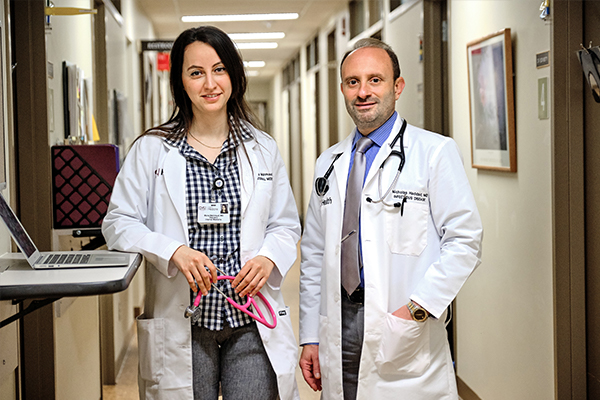
Academic Medicine Leader
Central Michigan University is continuing its commitment to ensuring access to high-quality services for Michigan residents living in rural geographies with the launch of the CMU Rural Health Equity Institute.
The institute will focus on rural health priorities and will join forces with local communities to promote well-being, quality of life and improve the health status of residents.
By centering on the unique aspects of rural health, the Institute will ally closely with communities and pursue opportunities that improve access to services, expand telehealth capacity, advance data solutions and tools and deliver education and training that respond to local needs.
The overall aim for the RHEI is to team up with community actions and forge solutions that improve the health and wellbeing of rural residents. This approach elevates CMU’s distinct capabilities and expertise in rural health to provide an innovation and collaboration hub serving rural, Mid-Central and Northern Michigan.
“CMU takes seriously its role to support and serve our surrounding communities,” said Robert Davies, CMU president. “So many staff, faculty, and students live, work, recreate and worship in nearby communities. We understand the unique challenges rural communities face. Moreover, we know the best solutions come from building alliances so every person in the community can attain his or her full health potential. This commitment is part of CMU’s deep history and ties with our community.”
In Michigan, rural health challenges are diverse across communities directly served by CMU. Rural areas are not all the same and encounter unique challenges, whether they are amenity-rich, transitioning or impoverished. Rural residents often cannot access care in their local community with health service provider shortages and hospital closures. Too often rural residents experience long distances to care as well as environmental challenges. Healthcare systems and public health services struggle to leverage scarce resources, but there is no one-size-fits-all solution for addressing some of these structural rural health challenges.
“Critical healthcare workforce shortages are prevalent throughout Michigan’s 57 rural counties,” said Dr. George Kikano, vice president for health affairs and dean of the CMU College of Medicine. “Local access to mental health services is a glaring disparity in many rural communities. Nearly two-thirds of Michigan’s psychiatrists reside in metropolitan and suburban areas in Southern Michigan. The CMU Rural Health Equity Institute will help coalesce a wide range of programs, people and resources at CMU now responding to the growing need for mental and physical health care. The Institute reinforces the CMU College of Medicine’s commitment to training physicians to provide comprehensive health care and services to underserved populations in Michigan and beyond.” The Rural Health Equity Institute will be housed at the College of Medicine in Mount Pleasant with the plan to position services to optimize engagement with rural geographies.
The issue wasn’t created by the COVID-19 pandemic, but the pandemic did shine a light on it.
“In many ways, the pandemic revealed disparities in the way it impacted different communities,” said Alison Arnold, director of the CMU Interdisciplinary Center for Community Health and Wellness. “Structural barriers have led to inequitable health care opportunities for rural residents. These barriers have persisted, and local communities have been resilient and resourceful in tackling some issues. But the pandemic really brought into light the severity of some issues – including mental health concerns, social isolation, and delayed access to much needed health care. Rural health equity means all people living in rural areas can live the healthiest life possible. This includes living a life free from discrimination and unfair treatment, as well as having access to healthcare and social services, safe neighborhoods, and places to live, reliable transportation, healthy foods, working wages that support basic needs, and community policies that are fair to all people.”